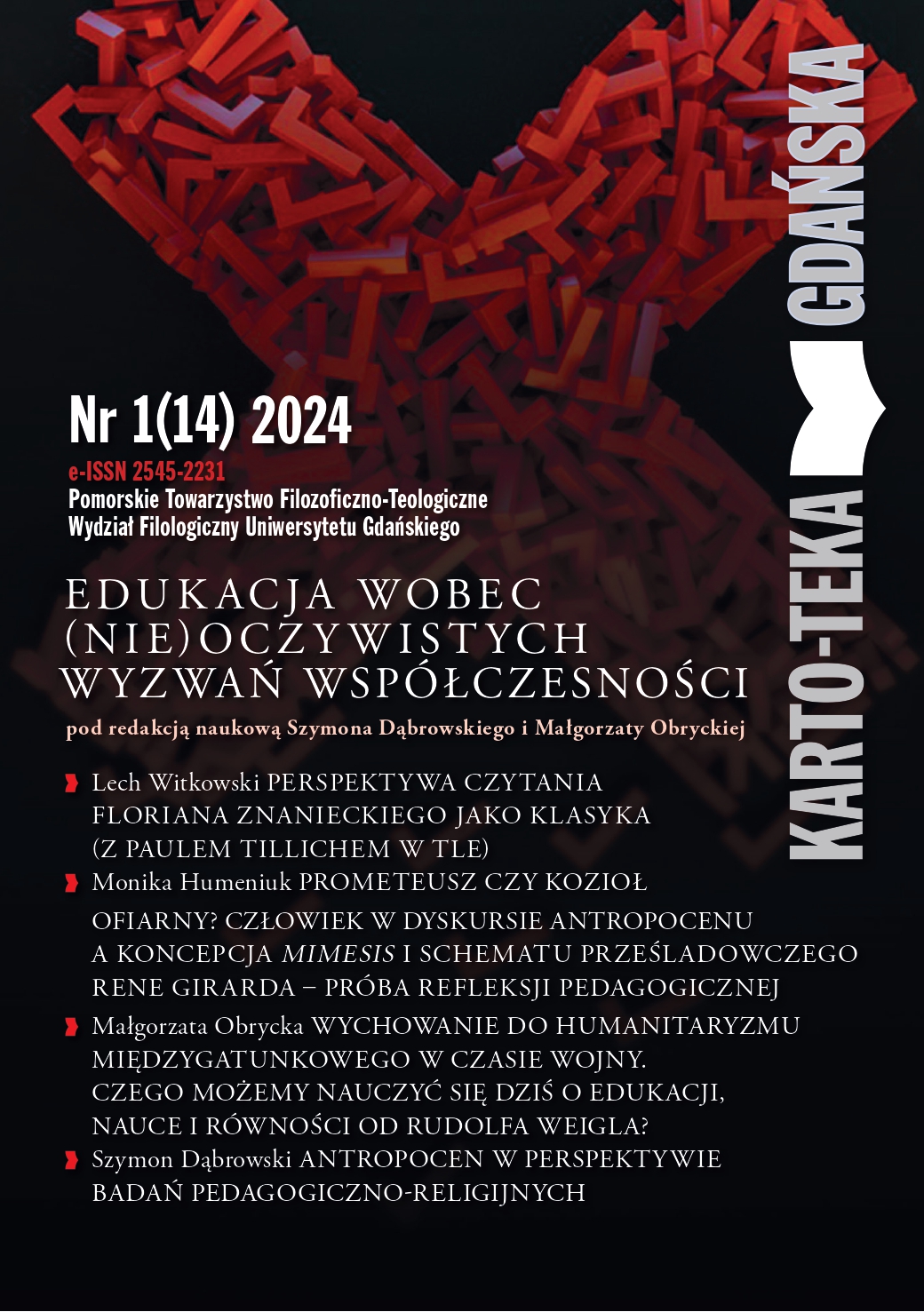Questions about the Role of Philosophy in Religious Education?
DOI:
https://doi.org/10.26881/kg.2024.1.08Keywords:
pedagogy of religion, religious education, philosophy of education, critical thinkingAbstract
The objective of the article is the reflection on the topic of the presence of philosophical education in the context of religious education. The basic point of reference of the analises are Szymon Dąbrowski’s considerations included in the book “The Philosophical Thinking in Religious Education. The Dispute of Józef Tischner with Polish Thomism in the Pedagogical and Religious Perspective”. The historical dispute of Józef Tischner with the representatives of Polish Thomism allows to put forward current questions about the role and place of the religious education in the context of the whole educational system, as well as the meaning of the philosophy in the area of religious thinking. The answers point to a non-transferable role of philosophy within Christian theology and the necessity of leaving one philosophical system (Thomism) as a tool of justifying and reinterpreting Christian doctrine. In the analises the aspect of the deficit of a proper (vast) philosophical formation in Polish religious educators (teachers, priests, shepherds) has been highlighted. It seems that this lack has a crucial impact on forming fundamentalist attitudes which are also responsible for shaping intellectually shallow interpretations of Christian tradition which are not infrequently in opposition to the achievements of human and natural sciences.
Downloads
References
Benedykt XVI, Wiara, rozum i uniwersytet – wspomnienia i refleksje. Wykład na uniwersytecie. Ratyzbona (12 IX 2006), OR 11/2006.
Dąbrowski S., Myślenie filozoficzne w edukacji religijnej. Spór Józefa Tischnera z polskim tomizmem w perspektywie pedagogicznoreligijnej, Toruń 2021.
Heller M., Sens życia i sens wszechświata, Kraków 2014.
Kacperczyk A, Autoetnografia – technika, metoda, nowy paradygmat? O metodologicznym statusie autoetnografii, „Przegląd Socjologii Jakościowej”, t. 10, nr 3, s. 32–74, http://www.qualitativesociologyreview.org/PL/volume27_pl.php (dostęp: 14.03.2024).
Klus-Stańska D., Paradygmaty dydaktyki. Myślec teorią w praktyce, Warszawa 2018.
Milerski B., Hermeneutyka pedagogiczna: perspektywy pedagogiki religii, Warszawa 2011.
Reale G., Historia filozofii starożytnej, t. 1, tłum. E. I. Zieliński, Lublin 1994.
Seewald P., Światłość świata. Papież, Kościół i znaki czasu. Benedykt XVI w rozmowie z Peterem Seewaldem, tłum. P. Napiwodzki, Kraków 2011.
Turowicz J., Człowiek, istota nieznana, „Tygodnik Powszechny” 1974, nr 1304, s. 1,7.

 Academic Scientific Journals
Academic Scientific Journals

